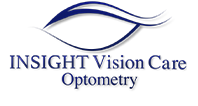Taking care of your family’s health requires managing a variety of appointments, from dental check-ups to annual physicals. Your eye health is a vital piece of that puzzle, but it’s easy to wonder if you’re scheduling exams as often as you should.
At Insight Vision Care Optometry, we believe that scheduling comprehensive eye exams on a consistent basis is the cornerstone of healthy vision.
The right frequency for eye exams depends on your age, health history, and whether you currently wear glasses or contacts. We can help you create a schedule that supports clear vision and long-term eye health for every member of your family, whether they wear glasses, need specialty contact lenses, or have a family history of eye disease such as macular degeneration. Maintaining a regular schedule for routine eye exams is a simple step to protect one of your most important senses.
Why Regular Eye Exams Matter for Your Family
A routine visit to the eye doctor is about more than just checking your vision. It’s a key part of your family’s overall wellness plan.
Correct Your Vision
Exams check how clearly you see at different distances. This is important because vision changes often happen so slowly that you might not notice them right away. An updated prescription helps keep the world in focus for you and your kids.
Detect Eye Diseases Early
Our approach to eye disease diagnosis and management can spot conditions before you notice any symptoms. Early detection is important for managing conditions like glaucoma and age-related macular degeneration (AMD) that could affect your sight down the road. Being proactive gives you peace of mind about your health.
Discover Other Health Conditions
Because your eyes give us a unique view of your body’s blood vessels and nerves, we can often uncover signs of other health issues. You might be surprised by what diseases an eye exam can detect, making your visit a valuable part of your complete health routine.
Eye Exam Frequency by Age
Recommendations for eye exam frequency change as you and your family grow. Here’s a simple guide based on age. These recommendations are for those without specific vision issues or risk factors.
Your Child’s First Eye Exams
A child’s first eye exam should happen between 6 and 12 months of age. Another check-up is recommended between ages 3 and 5, right before they start school. These early childhood exams help support healthy visual development.
School-Age Kids & Teens
Once your child starts school, they should have an eye exam every year. Their vision can change quickly as they grow, so annual check-ups are a good idea. This helps them succeed in the classroom and during activities.
Adults Ages 19 to 64
For adults in this age range, an eye exam is recommended at least every two years. Your eye doctor will let you know if you should come in more often. We base our recommendations on your personal vision and health needs.
Adults Ages 65 & Over
After age 65, you should schedule an eye exam every year. This helps us monitor for age-related changes, such as the development of cataracts, and other concerns to your eye health. Regular visits allow us to address any issues as they arise.
When You Need More Frequent Eye Exams

If you or a family member are at-risk or have certain existing vision issues, you may need to visit your eye doctor more often than the general guidelines suggest. We’ll work with you to find a schedule that fits your needs.
If You Wear Glasses or Contacts
When you wear glasses or contacts, an annual eye exam is recommended. Because a prescription for contact lenses is usually valid for one year, it’s important to understand why you need a contact exam every year. When you wear contacts, various complications can arise from having a foreign object in your eye, so it is important to have yearly eye exams. Regular visits also make sure your prescription provides the clearest vision possible.
Health & Family History Risk Factors
Your eye doctor might recommend more frequent exams if you have certain health conditions or a family history of eye disease. For example, they’ll recommend annual diabetic eye exams if you have diabetes. This personalized approach helps provide long term protection for your vision.
Signs You Should Schedule an Exam Now
You don’t have to wait for your next scheduled visit if you notice changes in your vision. Some symptoms may require emergency eye care, so make an appointment right away if you or a family member experiences new or sudden issues. Listen to your body—it often tries to tell you when something is wrong.
Signs that you should see an eye doctor include:
- Eye pain
- Persistent redness, which could be a sign of chronic dry eye, or itchiness
- Halos around lights
- Sudden changes in vision
- Digital eye strain with computer use
- Difficulty with night driving
- Discomfort with contact lens wear
- Fluctuating vision
- Headaches
What to Expect at Your Family’s Eye Exam
A comprehensive eye exam is a straightforward and comfortable process. We’ll guide you and your family through the process.
The Vision Check
This part of the exam tests the sharpness of your vision. You’ll likely read letters from an eye chart to see how clearly you can see up close and far away. We also check other important functions, like your binocular vision and color perception.
The Eye Health Check
Your optometrist will look at the physical structures of your eye. They will use a biomicroscope to check the surface health of your eyes and also check for cataracts, glaucoma, and macular degeneration. They may use a special light and magnifier to view the back of your eye. This detailed look helps them check for any signs of eye disease or degenerations.
At Insight Vision Care Optometry, our promise is simple: Happy Eyes, Happy Life. We understand the trust you place in us to care for your eyes, and we’re here to provide the highest quality eye care for you and your family members. If you have questions about your vision or eye health and are ready to book a visit, please contact us today.



